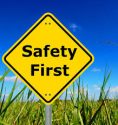 Residential and commercial delivery is always free! Never run out in the middle of grilling again…and it’s less expensive! Servicing Visalia, Exeter, and Tulare. Visit https://tankswappers.com
Residential and commercial delivery is always free! Never run out in the middle of grilling again…and it’s less expensive! Servicing Visalia, Exeter, and Tulare. Visit https://tankswappers.com
Exeter: (559) 592-3154 | Office Hours: Weekdays 8a.m. – 5p.m. | Saturday 8a.m. – 12p.m.
Porterville: (559) 784-4715 | Office Hours: Weekdays 8a.m. – 5p.m. | Saturday Closed
Fresno Area Call: (559) 264-7839
24 / 7 Emergency Service: 1-(800)-542-4427
Exeter: (559) 592-3154
Porterville: (559) 784-4715
Fresno Area: (559) 592-3154
 Residential and commercial delivery is always free! Never run out in the middle of grilling again…and it’s less expensive! Servicing Visalia, Exeter, and Tulare. Visit https://tankswappers.com
Residential and commercial delivery is always free! Never run out in the middle of grilling again…and it’s less expensive! Servicing Visalia, Exeter, and Tulare. Visit https://tankswappers.com

Leak tests are required any time there is an interruption of service meaning the flow of gas was stopped for any reason. NFPA 54 (2006), 8.2.3 states that “Immediately after the gas is turned on into a new system or into a system that has been initially restored after an interruption of service, the piping system shall be tested for leakage. If leakage is indicated, the gas supply shall be shut off until the necessary repairs have been made”.
All propane piping, connections and fittings are threaded so that they may easily connect together during installation or modification. These propane connections are coated with a pipe joint compound that lubricates the fittings during the joining process and will dry after a short while. During normal usage, a propane plumbing system is at a constant pressure. This means that as long as the tank has gas and is supplying the system with propane, a constant pressure is exerted on the piping and the pipe joint compound. The pipe joint compound will expand during normal pressurized usage and will retract if the system loses pressure. This loss of gas pressure may cause leaks to form because of the expansion and retraction of the piping compound within the propane plumbing system.
The leak test will indicate any leaks within the propane piping system due to interruption of service or out of gas situation. The leakage test is simply testing the integrity of the system plumbing joints and the seal of the pipe joint compound. This is the safety reasoning behind leak testing. The real reason a leak test is performed is because it is required by law and none other.
All too often, propane customers run out of gas when temperatures are the coldest. No matter what the temperature or how busy the gas company is, if the tank is out of gas a leak test is required. This is considered an interruption of service. How do you keep from running out of gas? Keep an eye on the tank gauge or have your propane company place you on an automatic delivery schedule. Out of Propane = Mandatory Leak Test. It may not be convenient but it’s the law. Learn more about reading your propane tank gauge as to not run out of gas.
Many companies will charge a fee for performing a leak test. Even if a propane company does not charge for a leak test, it costs the company time and money. Cold weather brings about increased gas usage and because more propane customers run out of gas during these cold spells, propane delivery personnel perform more leak tests. If leaks are discovered during a leak test, the driver has to fix the leak(s) before filling the tank. These repairs can sometimes take an hour or more leaving the driver with less time to complete his deliveries. If the propane company is busy performing leak tests and repairs, they are not delivering as much gas as they could or should be. This sometimes results in lost customers and decreased output. Leak testing is required but costs a propane company more in time to test and repair a gas system than they could make by delivering the much needed propane to cold customers. Even if the propane company charges a hefty price for a leak test, consider it a positive thing. A propane company that is trying to deter consumers from running out of gas is taking an active stance in protecting the propane industry and its customers.

In its natural state, propane is colorless and odorless. However, to make it easier to detect gas leaks, a chemical compound is deliberately added to the gas in order to emit a strong, unpleasant odor in the event of a leak, alerting homeowners to take action. You can liken the smell of propane gas to rotten eggs, a dead animal or skunk’s spray.
When mixed with oxygen, propane can ignite from otherwise innocuous sources such as: static electricity and electrical sparks. Obvious culprits are lit cigarettes and open flames. Since propane is heavier than air, gas will often accumulate in lower spaces like along floors or in basements.
If you smell gas, EXTINGUISH all smoking materials and open flames immediately, and LEAVE THE AREA!
Certain people may have trouble smelling propane gas, such as older folks on various medications, those with sinus problems, smokers and drinkers. Rust, air or water on the inside of your tank or cylinder can also reduce the effectiveness of the odor, resulting in “Odor Fade,” making leaks difficult to detect. Therefore, it is important to take immediate and appropriate measures even if you detect the slightest gas odor.
As an extra security measure, Propane Gas Detectors sound an alarm when gas is present. If smell is not your strongest sense, you may want to purchase one or two of these detectors to place in areas where you use or store propane gas.
When purchasing your Propane Gas Detector…
Periodic Inspections of your Propane Systems are always a Good Idea
Before you dig on your property, please call the Diggers Hotline 811/1-800-227-2600 to help you find the underground lines of all types located on your property. The size and location of your gas system may require compliance with federal, state, or local laws. For example, underground lines that run under a public place may require that you register with the Digger’s Hotline/”One-Call” Program in your state.
Home Contact Us | About Us | Propane Overview | Locations | Residential | Commercial | Ag Services | Pacific Pride Fueling Instructions | Oils and Lubricants | Products

RENEWABLE PROPANE COMING AUGUST 2024 Learn more